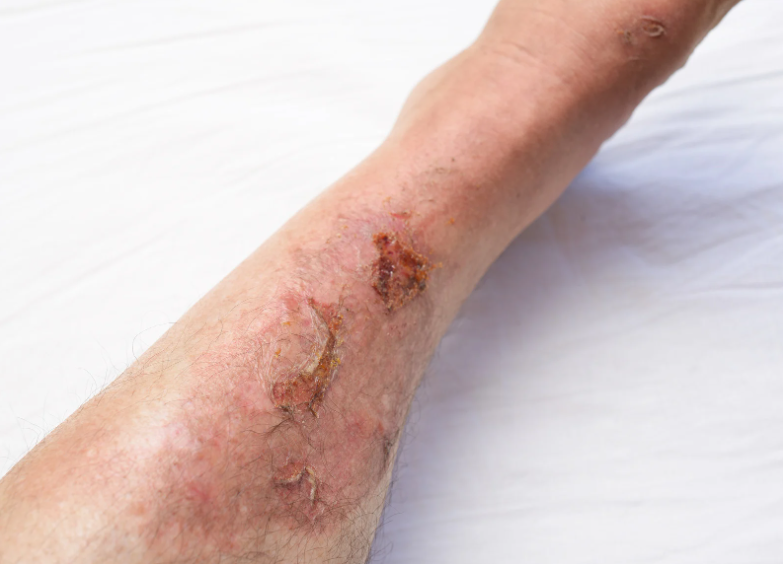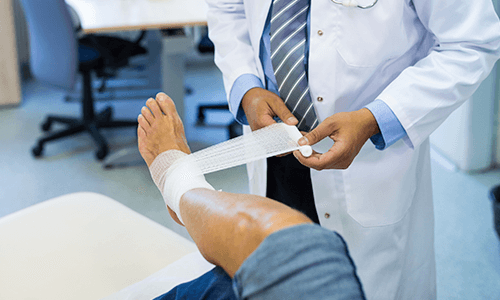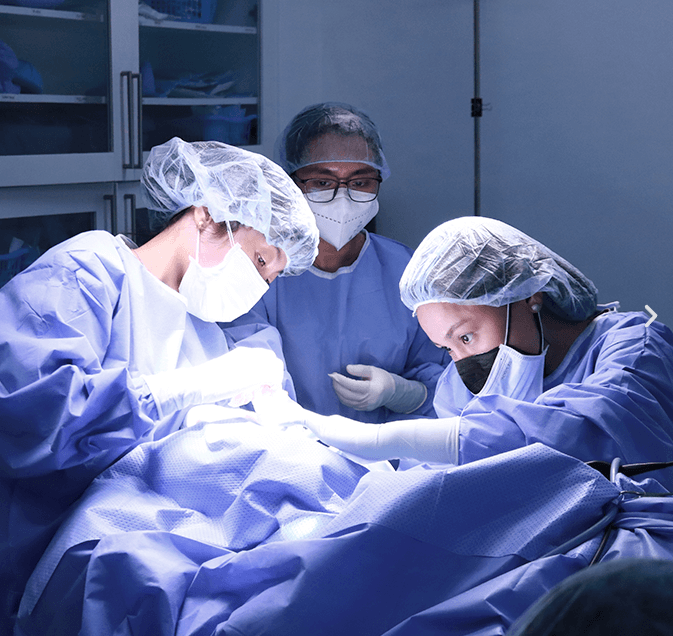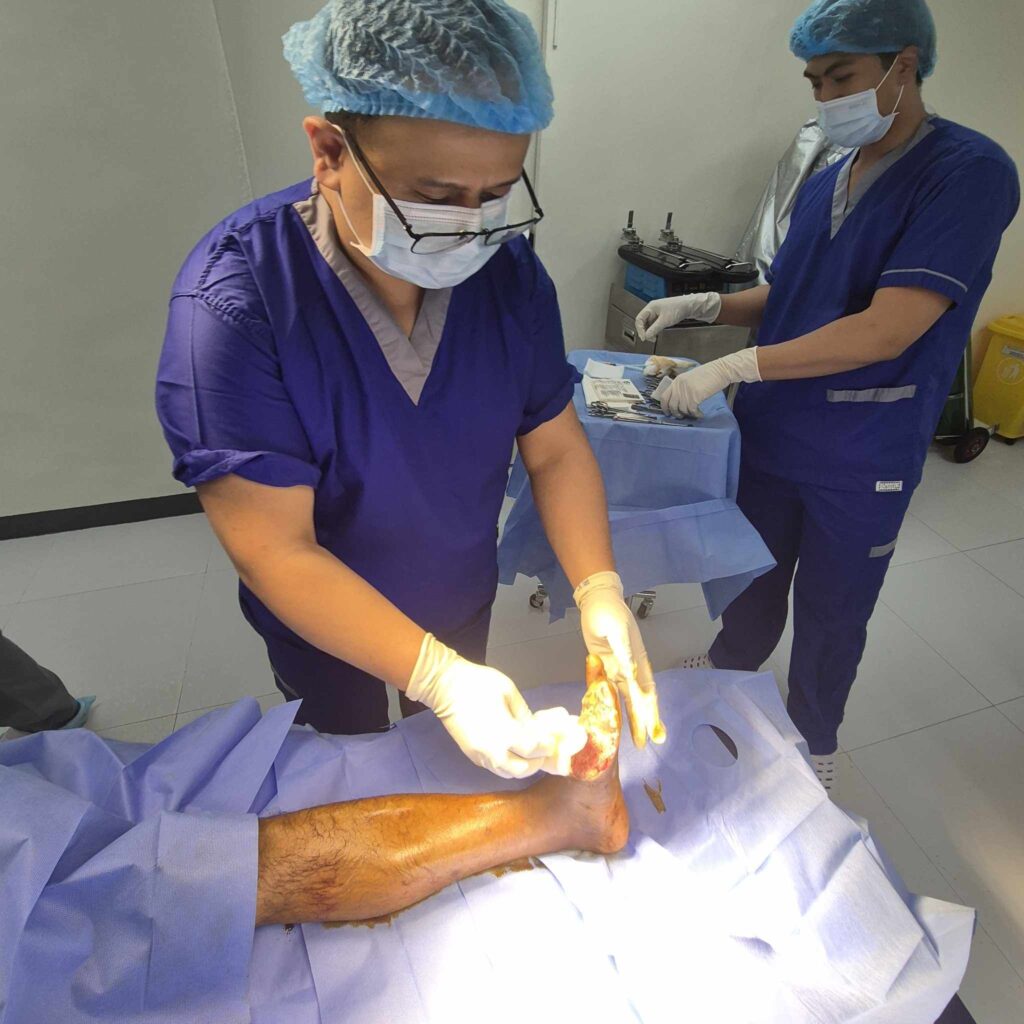Orthopedic Treatment for Non-Healing Wounds is crucial for individuals suffering from chronic wounds that fail to heal properly. These wounds, often caused by conditions such as diabetes, poor circulation, or musculoskeletal issues, can significantly impact mobility and overall comfort. Without proper intervention, non-healing wounds can lead to severe infections, tissue damage, and even amputation. Seeking specialized orthopedic care ensures that the underlying musculoskeletal problems are addressed, promoting faster recovery and improved quality of life.
Understanding Non-Healing Wounds
Non-healing wounds are chronic injuries that do not progress through the normal stages of healing. Unlike minor cuts or injuries that heal within a few weeks, these wounds persist for months or even years. Orthopedic Treatment for Non-Healing Wounds focuses on identifying the root causes, which may include diabetes-related foot ulcers, pressure sores, venous insufficiency, or post-surgical complications. These wounds often develop in areas with poor blood circulation, leading to pain, inflammation, and restricted mobility.
Orthopedic specialists assess factors like bone deformities, improper posture, or joint misalignment that contribute to delayed healing. Addressing these orthopedic concerns ensures that the affected areas receive adequate blood flow, reducing complications and promoting tissue regeneration.
The Role of Orthopedic Care in Wound Healing
Orthopedic Treatment for Non-Healing Wounds plays a vital role in promoting recovery by managing structural and biomechanical issues that hinder healing. Orthopedic specialists evaluate gait abnormalities, joint stress, and musculoskeletal imbalances that contribute to wound persistence. By implementing targeted interventions, such as custom orthotics, offloading techniques, and surgical procedures, orthopedic professionals help patients regain mobility while preventing further deterioration.
Orthopedic care also emphasizes the importance of addressing infections, inflammation, and vascular deficiencies that prolong wound healing. By working alongside wound care specialists, orthopedic professionals develop comprehensive treatment plans that enhance circulation, improve joint stability, and facilitate faster recovery.
Advanced Orthopedic Treatments for Non-Healing Wounds
Offloading and Pressure Relief Techniques
One of the primary methods in Orthopedic Treatment for Non-Healing Wounds is offloading, which reduces pressure on affected areas. Patients suffering from diabetic foot ulcers or pressure sores benefit from specialized orthopedic footwear, custom braces, and mobility aids designed to redistribute weight and alleviate strain. By minimizing direct pressure on wounds, orthopedic specialists help accelerate healing and prevent complications such as infections or ulcers.
Surgical Interventions for Chronic Wounds
In severe cases, orthopedic surgery may be necessary to address underlying bone and joint issues that hinder healing. Procedures such as skin grafts, flap surgery, and bone realignment improve blood circulation and promote wound closure. Orthopedic Treatment for Non-Healing Wounds also involves reconstructive surgery to correct deformities that contribute to chronic wounds, ultimately restoring function and mobility.
Surgical interventions are particularly beneficial for patients with deep infections or osteomyelitis, a condition where bone infection impairs healing. By removing necrotic tissue and stabilizing affected areas, orthopedic surgeons enhance the body’s ability to repair itself and prevent further deterioration.
Regenerative Medicine and Innovative Therapies
Regenerative medicine is transforming Orthopedic Treatment for Non-Healing Wounds by using the body’s natural healing mechanisms. Stem cell therapy and platelet-rich plasma (PRP) injections stimulate tissue regeneration, reducing inflammation and enhancing wound closure. Additionally, hyperbaric oxygen therapy increases oxygen supply to damaged tissues, accelerating healing in orthopedic patients.
Bioengineered skin substitutes, another breakthrough in orthopedic wound care, provide an effective solution for patients with extensive tissue damage. These advanced treatments significantly improve outcomes, especially for individuals with diabetes, vascular diseases, or mobility impairments.
Rehabilitation and Physical Therapy for Wound Recovery
Rehabilitation plays a crucial role in Orthopedic Treatment for Non-Healing Wounds by strengthening muscles, improving mobility, and preventing further complications. Physical therapy helps patients regain function through customized exercises that enhance circulation, flexibility, and joint stability.
Orthopedic rehabilitation programs focus on reducing pressure points, correcting posture, and improving weight distribution. By incorporating mobility training and wound care education, therapists ensure patients adopt long-term strategies for preventing recurring wounds. Additionally, supervised exercise regimens promote better circulation, enabling faster wound healing and minimizing the risk of infections.
Preventing Non-Healing Wounds: Orthopedic Best Practices
Orthopedic specialists emphasize preventive measures to reduce the risk of chronic wounds. Orthopedic Treatment for Non-Healing Wounds includes personalized recommendations such as:
- Foot and joint care: Regular foot examinations and early intervention for musculoskeletal issues.
- Proper footwear and orthotics: Custom orthopedic shoes and insoles to minimize pressure points.
- Lifestyle modifications: Healthy diet, proper hydration, and blood sugar management to support wound healing.
- Regular mobility assessments: Identifying movement impairments that may lead to chronic wounds.
By following these orthopedic best practices, patients can maintain mobility, prevent wound recurrence, and improve overall well-being.
When to Seek Orthopedic Help for a Non-Healing Wound
Patients should seek Orthopedic Treatment for Non-Healing Wounds if they experience persistent pain, swelling, foul-smelling discharge, or increased wound size. Delaying treatment can lead to serious complications, including infections that may require amputation.
Orthopedic specialists perform comprehensive evaluations, including imaging tests, gait analysis, and vascular assessments, to determine the best treatment approach. Seeking early intervention from a qualified orthopedic professional ensures timely and effective wound management, reducing the risk of long-term disability.
Takeaway
Orthopedic Treatment for Non-Healing Wounds is essential for restoring mobility, reducing pain, and preventing severe complications. By addressing underlying musculoskeletal issues, orthopedic specialists enhance circulation, promote wound closure, and improve quality of life for patients suffering from chronic wounds.
Early diagnosis and targeted interventions, including offloading techniques, surgical procedures, and regenerative medicine, significantly improve healing outcomes. Patients experiencing slow-healing wounds should consult an orthopedic specialist to develop a personalized treatment plan that supports long-term recovery and mobility.
Taking proactive steps in wound care and orthopedic management ensures better health, comfort, and an improved overall quality of life.






